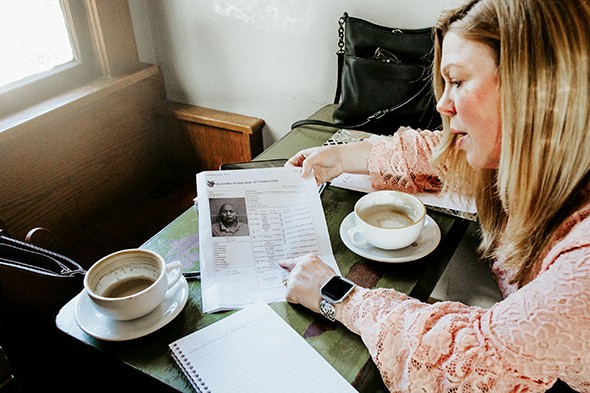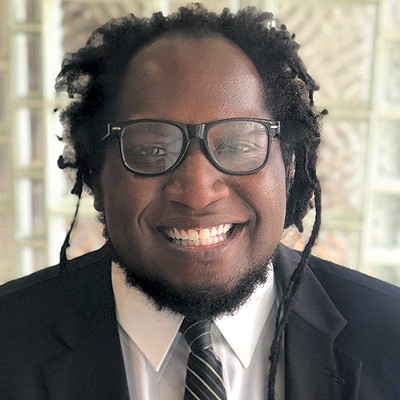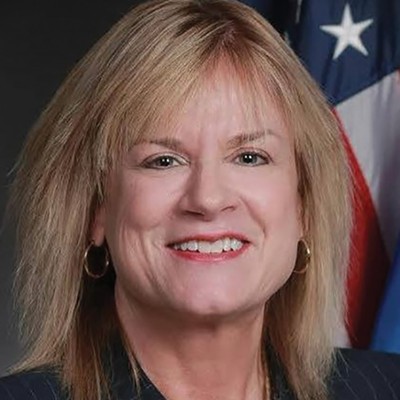
When 45-year-old Oklahoma City mortgage loan officer Lauren Layman finally laid eyes on the man who raped and murdered her great-grandmother 35 years ago, she felt a little sorry for him.
Lester Blackbear was 27 years old when he allegedly broke into 77-year-old Ola Kirk’s apartment one summer night in 1983. He was accused of savagely beating the great-grandmother — a stranger to him — to death.
Three decades later and after a relentless pursuit to find her great-grandmother’s killer, Layman sat in a courtroom and took in the sight of Blackbear, who had grown weak and frail with age and who had supposedly given his life to God as a means to repent for other crimes he committed.
Despite DNA testing that linked him to Kirk’s murder, Blackbear pleaded not guilty, Layman said.
She never sought revenge, she said, just justice.
“A life’s a life,” she said. “There’s victims on both sides. I lost my great-grandmother, and they (Blackbear’s family) lost their brother, even if he was a killer and the black sheep of their family.”
In the years following Kirk’s murder, Layman discovered that Blackbear lived in her great-grandmother’s neighborhood during the time she was murdered and had a reputation of being what Layman called “Chester the child molester.”
“He tried to get in bed with his roommate’s girlfriend and was kicked out of the apartment when his roommate found out,” Layman said. “So he went to my great-grandma’s house, broke into her window, killed her and raped her.”
Cold case
The family was scared, devastated and, for the most part, completely unaware of any rights they had as family members of a victim.They paid six months’ worth of rent, Layman said, to clean up the crime scene — a service Layman now knows can be paid for upon request through the state’s Crime Victims’ Compensation Program.
For years, the family remained hopeful of finding Kirk’s killer, but half a decade later, when Kirk’s death was deemed a cold case by investigators, hope turned to defeat.
“It became a dark cloud that hung around our heads,” Layman said. “It was the thing we were supposed to move past and not talk about.”
In 2010, Layman saw her great-grandmother’s name featured in a newspaper story about how state investigators were reopening cold cases. She went to the Oklahoma State Bureau of Investigation (OSBI), where she hoped to speak with investigators. What she got instead were countless hours spent alone in a waiting room.
Layman’s frustration over an unresponsive court system foreshadowed a two-year battle she would face to finally put her great-grandmother’s murder to rest.
Calls Layman made to her district attorney were never returned, she said. Staff workers at her county DA’s office would direct her to OSBI, whose staffers would redirect her back to her DA’s office.
Eventually, Layman said, a former Blaine County DA told her to stop calling altogether.
“Voting against Marsy’s Law could spare law enforcement months of planning, but voting for it could spare crime victims a lifetime of heartache.” — Lauren Layman
tweet this
Through her own devices, Layman discovered that Blackbear was a convicted sex offender who fled Oklahoma and was living in Arizona. Layman orchestrated Blackbear’s arrest since he failed to register as a sex offender in Arizona, a state that has a zero-tolerance policy for not doing so.
In what felt like the fight of her life, she said, Layman pushed Oklahoma law enforcement to transport Blackbear to the Blaine County Jail. After a DNA test positively linked Blackbear to Kirk’s murder, prosecutors charged him with her death.
It was only then, Layman said, that investigators began taking her seriously. The new district attorney in Blaine County, Mike Fields, introduced himself to victims as friend, not foe.
“He told me he was sorry for my loss,” Layman said. “No one in the system had said that before. He said he couldn’t promise me anything other than that he would do everything in his power to seek justice for my great-grandmother and our family.”
Two weeks before a preliminary hearing, when the court would agree upon a time to start trial, Blackbear suffered cardiac arrest in jail and died shortly afterward. Layman felt robbed.
“I wanted him to die in jail, and that’s what happened,” Layman said. “But I didn’t get an apology, a testimony … it just didn’t feel like closure.”
Fields called Layman the night of Blackbear’s death and told her that while she might never get the closure she longed for, the journey she took to find it was nothing short of remarkable. An OSBI investigator, she said, asked if she’d ever consider a career in law enforcement.
Layman was flattered but focused instead on fixing a tangle in the criminal justice system.
Muddy water
State Question 794, also known as Marsy’s Law, is one way, Layman said, of preventing crime victims and their families from suffering in vain.The law would enforce victims’ rights already established within the Oklahoma Crime Victims Bill of Rights by elevating them from statutory recommendations to constitutional mandates, Marsy’s Law state director Kim Moyer said.
“Some of the resistance we’ve seen has to do with concerns of duplicity,” Moyer said.
Appellate defense attorney Katrina Conrad-Legler echoed those concerns in a debate hosted by the nonprofit news organization Oklahoma Watch earlier this month.
“These rights restate the ones already in existence,” Conrad-Legler said. “There are many rights already enshrined in the state statue. Why add additional language to an already-complicated system? Why muddy the water?”
The passage of Marsy’s Law by voters during November’s general election would actually simplify the process of supplying victims with their rights, Moyer said.
“Miranda rights are issued to the accused without fail,” Moyer said. “Because the constitution mandates that Miranda rights be issued and because officers face repercussions if those rights are not issued, they are given every time with due diligence.”
While Oklahoma’s constitution mentions victims’ rights and while Oklahoma’s Crime Victims Bill of Rights elaborates on them, Moyer said neither document makes issuing victims their rights a requirement under the law.
The specific language in Marsy’s Law, Kay County district attorney Brian Hermanson said, will require investigators to issue crime victims their rights and will make not doing so punishable.
If voted into law, Marsy’s Law supporters say it will guarantee victims the right to receive timely notification of proceedings and of the accused’s status within the court system. The law will also guarantee victims the right to be present during court proceedings, the right to provide input to the prosecutor before a plea agreement is finalized, the right to be testify at all proceedings that might result in the offender’s release and the right to restitution.
“There is always room for improvement,” Hermanson said. “There’s no law out there that can’t be made better.”
“Voting against Marsy’s Law could spare law enforcement months of planning,” Layman said, “but voting for it could spare crime victims a lifetime of heartache.”











